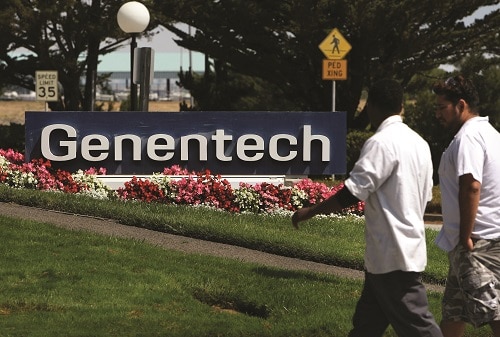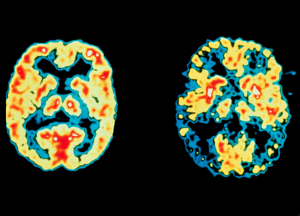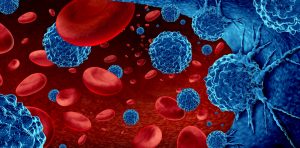
Genentech announces positive top-line results for “wet” age-related macular degeneration antibody
pharmafile | January 25, 2021 | News story | Sales and Marketing | Genentech
Genentech has announced positive top-line results from two identically designed global Phase III studies, TENAYA and LUCERNE, evaluating its investigational bispecific antibody, faricimab, in people living with neovascular or “wet” age-related macular degeneration (nAMD).
Both studies met their primary endpoint and showed that people receiving faricimab injections at fixed intervals of up to every 16 weeks achieved visual acuity outcomes that were non-inferior to those receiving aflibercept injections every eight weeks. Nearly half (45%) of people in both studies were treated with faricimab every 16 weeks during the first year.
The results mark the first time this level of durability has been achieved in a Phase III study of an injectable eye medicine for nAMD. In both studies, faricimab was generally well-tolerated, with no new or unexpected safety signals identified.
Neovascular AMD affects approximately 1.1 million people in the US, and is the leading cause of blindness in those aged 60 and older. Current standards of care – injections that inhibit vascular endothelial growth factor (VEGF) – have significantly reduced the rates of vision loss due to nAMD, but VEGF is not the only pathway involved in the development and progression of this complex condition. With anti-VEGF monotherapies, people with nAMD have to visit their ophthalmologist as often as monthly for eye injections to help maintain vision gains or prevent vision loss. This high treatment burden can lead to under-treatment and potentially less than optimal vision outcomes.
Faricimab is the first bispecific antibody designed for the eye, and targets two distinct pathways – via angiopoietin-2 (Ang-2) and VEGF-A – that drive a number of retinal conditions, including nAMD.
Dr Levi Garraway, Chief Medical Officer and Head of Global Product Development at Genentech, said: “These results show the potential of faricimab as a new class of medicine that could extend time between treatments for people living with neovascular age-related macular degeneration.
“We have now seen positive and consistent results in four Phase III studies for faricimab across both neovascular age-related macular degeneration and diabetic macular edema. We look forward to submitting these data to global regulatory authorities, with the aim of bringing this promising treatment option to patients as soon as possible.”
Darcy Jimenez
Related Content

Sangamo Therapeutics and Genentech team up to develop genomic medicines for neurodegenerative diseases
Genomic medicine company Sangamo Therapeutics and Genentech have entered into a licensing agreement to develop …

Genentech’s Columbi meets primary endpoint in phase 3 trial for lymphoma treatment
Genentech, part of the Roche Group, has announced that its phase 3 STARGLO trial has …

Genentech shares positive results from phase 3 trial for breast cancer treatment
Genentech, a member of the Roche Group, has announced positive results from the phase 3 …






